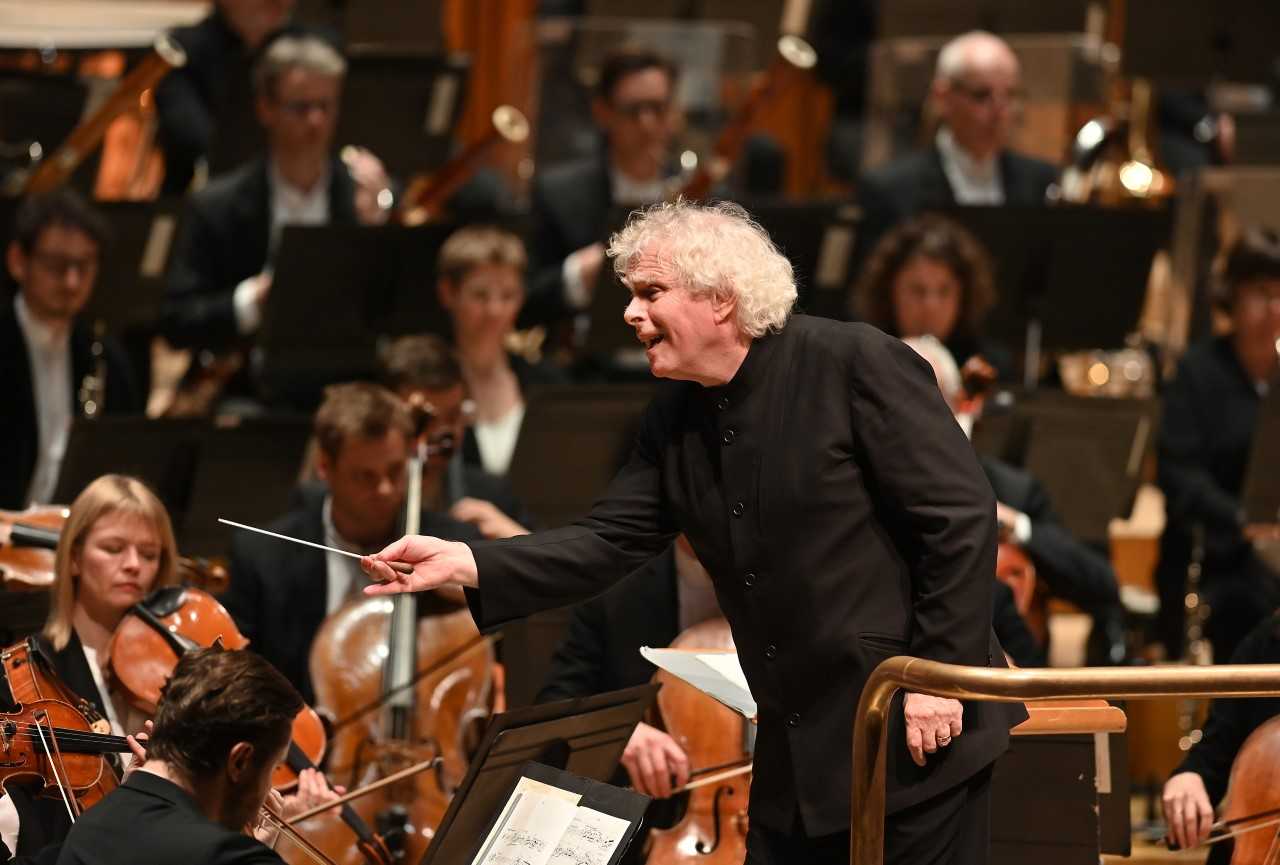Christus am Olberge review, London Barbican: Simon Rattle leads gutsy performance of Beethoven’s oratorio
Composed in 1803, at a time when Beethoven was also writing his second symphony and his third piano concerto, this work reflects the emotional pressure he was under

It’s 250 years since Beethoven’s birth and every concert hall in the world is paying homage to the composer. All are looking for something new to say and if possible something new to play. Full marks to Simon Rattle and the London Symphony Orchestra for settling on Christus am Olberge – “Christ on the Mount of Olives” – which was the only oratorio the composer wrote. It has always been upstaged by his Missa Solemnis and Fidelio, and is very rarely performed.
Composed in 1803, at a time when Beethoven was also writing his second symphony and his third piano concerto, this work reflects the emotional pressure he was under. He had just written his Heiligenstadt Testament, the unsent letter to his brothers in which he confessed his despair at his encroaching deafness; Christ’s lonely agony was all too natural a vehicle for Beethoven’s own agony, and for his heroic struggle to transcend his fear of the future.
He wouldn’t have heard Bach’s Passions, but he would have been familiar with some of Handel’s oratorios, and he would certainly have registered Haydn’s Creation and The Seasons, which were popular in Vienna at the time. His opera Fidelio was only distantly gestating, but there are clear pre-echoes of that in Christus am Olberge, most notably of Florestan’s monologue in his prison cell. But this oratorio is in no way a peripheral adjunct to the main oeuvre: tentative at times, it’s Beethoven’s true voice, even if he wasn’t totally happy with the libretto.
Backed by London Symphony Chorus, the soloists in this performance are well up to the challenge, bass David Soar providing the grounding over which tenor Pavol Breslik, as Jesus, sings out with noble plangency, while the sound of soprano Elsa Dreisig, as the Seraph, rings angelically through the hall. Dense with musical ideas, the work seems to hold in embryo many other works which will surface later in Beethoven’s oeuvre, but as the thinnish drama unfolds one has the sense of a heroic musical conception seeking – but not finding – a commensurately substantial libretto. Gutsy rather than tragic, it winds up with Beethoven’s version of the “Hallelujah Chorus” delivered with broad grins all round.
Alban Berg is the other composer with whom Rattle is currently pairing Beethoven, and on this occasion we get his violin concerto with Lisa Batiashvili as soloist. Her performance is flawless, rendering the open-string figurations of the first movement with graceful poise, and following the trajectory of the tormented finale – reflecting all the anguish of the composer’s final year – with tenderness.
Join our commenting forum
Join thought-provoking conversations, follow other Independent readers and see their replies
Comments
Bookmark popover
Removed from bookmarks